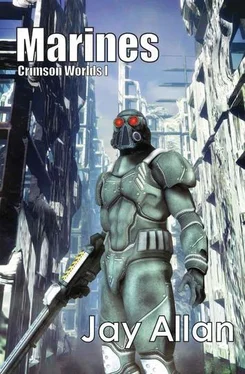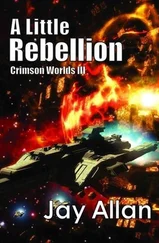The high command had been certain about our control of the sky, but the enemy had another surprise ready when the first wave of heavy landing ships came in. They had maintained a large reserve of aircraft in a hidden underground base, and these were launched in a single massive strike against the inadequately escorted landers. They were mostly antiquated cargo planes reconfigured to carry batteries of close range air-to-air sprint missiles. Against fighters they would have been annihilated, but as launch platforms targeting landers armed only with point defense lasers the result was disaster – less than half of the first wave made it to the surface. In addition to the loss of almost 3,000 troops and 80 tanks, the attack resulted in the destruction of a large percentage of our available landing craft, retarding our ability to get the rest of the force down to the surface.
Fleetcom responded quickly, and Admiral Scheer scrambled every atmospheric fighter we had. They didn’t arrive in time to save the landers, but they did manage to intercept the enemy aircraft as they were returning to base. Outgunned, outclassed, and low on fuel, the enemy planes were wiped out.
While the air battle was raging, the enemy launched another full scale attack all along our perimeter. We had to fight desperately to hold on while feeding in reinforcements from the surviving landing craft. We came very close to being overrun, but just as our lines were caving in at all points a wave of our refueled and rearmed aircraft halted the enemy attack. I have to commend the pilots. They flew mission after mission, utterly disregarding the devastating AA fire from the ground, and they saved our asses.
By planetary nightfall, the enemy was pulling back to their starting positions. Our casualties were high, not least among the fighters, who lost a third of their number in six hours of sustained combat, on top of 50% casualties they had suffered previously in the campaign. Only one in three were still flying.
My company had been assigned to landing facility construction and defense, so we had suffered comparatively few losses to this point. We hadn’t seen any combat until that afternoon when the enemy almost penetrated to the landing areas. Even then we were defending prepared positions, and my squad suffered only two casualties – both wounded. But one of these was Will Thompson, and when he went down I inherited the squad.
With many of the heavily engaged units down to 25% of their initial strength, our company was rotated into the front lines the next morning. We marched through a hellish scene of destruction, and the ground was so cratered and full of debris it was difficult to make progress, even in armor. But we picked our way methodically through the wreckage and the ravaged landscape, and we reached our assigned position right on schedule.
My squad took over a section of the jagged trench line about 200 meters long from the two survivors of the original defending unit. I positioned the Squad Auto Weapon in the center of our line and the rocket launcher in reserve, ready to deploy as needed. Then we watched and waited.
There had been heavy action here, and looking around you could see where the area had been shelled pretty heavily. The trench itself was partly collapsed in several spots, where hasty repairs had been made, but no materials for bracing were available. You could dig like a backhoe in armor, but you still couldn't stop dirt from caving in, especially when it is getting pounded by artillery.
All of our dead and wounded seemed to have been evac'd, but looking out across the plain in front of the position at amp factor three I could see at least 20 enemy bodies, or parts of bodies, scattered around.
It seems to me that the smart call would have been to cancel the mission and begin the withdrawal. I realize that I’m looking back with perfect hindsight now, and it’s a dead certainty that no one in the high command asked for my opinion. But we’d already lost almost 30% of the ground forces and two-thirds of the atmospheric fighters, and all we had to show for it was a sixteen kilometer radius foothold.
But like I said, the high command didn’t consult me…or anyone else on the ground, I’d wager. So we spent two days manning a trenchline on the outskirts of the LZ while our sadly depleted flotilla of landing craft brought down the rest of the invasion force. During this period things were very quiet. The enemy, just as badly battered as we were and having failed to stop the landings, used the time to regroup their own scattered and exhausted units. We'd exchanged only sporadic fire and had no new casualties.
I was probably one of the only unit commanders to have more troops than he started with, though of course I didn't start as a unit commander at all. Our company still hadn't suffered too badly at this point, but the losses we had taken had fallen disproportionately on the non-coms, so Captain Fletcher reorganized the company. I'm pretty sure she wanted a veteran non-com running every squad, and there were some that would have been under a senior private if she didn't move things around. I ended up with 3 four man fire teams instead of two with five men each, so there were thirteen of us including me.
I did my best to make sure my three teams had someone experienced in charge, but I only had one other corporal, so two of them ended up with senior privates in command. Team two was under Harris, who was up for a bump to corporal anyway, so I stuck close to team three since it was under the most junior leader.
Our section of trench overlooked the ruins of a small city, really an industrial complex with an attached residential area. It had been bombarded from space, and we'd hit it a number of times with land-based ordnance too, so the place was in pretty rough shape. Of course Fleet could have flattened it completely, but we actually wanted to take it, not destroy it, so the barrage had been limited.
I knew the complex was going to be our objective, and I didn't like what I saw. We were about three kilometers out, and the approach was mostly flat and open. Our position was slightly uphill from the town, but there were no intervening ridges or cover. The ground, which was originally covered with scrubby grass that looked like some type of Earth transplant, was churned up and pockmarked from the shelling.
"Display unit status reports." My non-com armor had enhanced AI with voice-activated control - a nice improvement over the buttons and levers in a private's suit.
"Displaying requested data now." The AI's voice was calm and somewhat mechanical sounding. It had some type of minor accent I couldn't quite place. No doubt some task force spent a long time figuring the ideal combination of cost-effectiveness and psychology. Or something like that.
The default projection area was just above eye level, so the data didn't obscure the ability to see through the visor. But rolling my eyes upward always gave me a headache, so I'd reconfigured the system to project information below, so I could look down rather than up.
I scanned the blue holographic symbols as my AI cycled through reports of each member of my expanded squad. Everybody looked good. Two had minor damage to their armor, but nothing serious and, just as relevant, there was nothing we could do anything about anyway. One trooper was running a slight fever, but if it got any worse his suit would automatically medicate. All weapons checked out and were loaded and fully functional.
I knew things would get started soon when other units began moving up and taking position around us. It looked like the whole battalion, or what was left of it, was forming up. My AI gave me very limited information outside of my own unit, but the best I could figure there were about 300 troops supported by 6 light tanks to attack along a ten kilometer front.
Читать дальше












